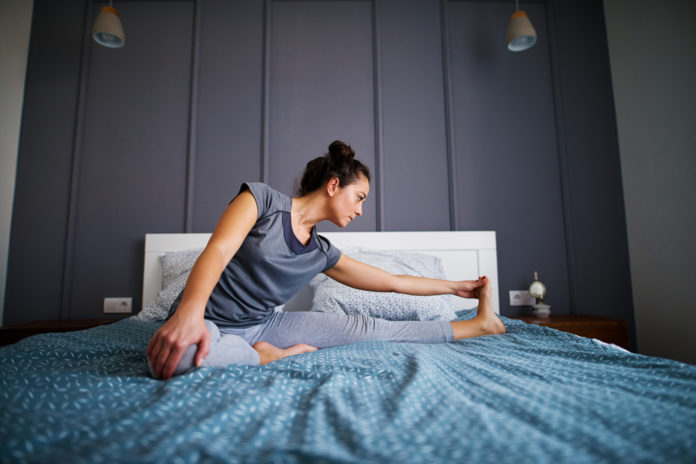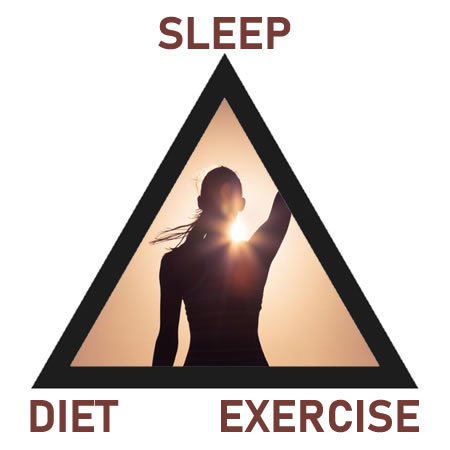Written by: Nick Agius (Accredited Exercise Physiologist)
Everyone is aware of how they feel after experiencing a poor night’s sleep. The following day is plagued by lethargy and brain fog, resulting in reduced performance and function.
Sleeplessness can also snowball into a negative health resulting in inactivity and reducing exercise adherence. This cycle can cause more restlessness the following night.
The occasional night of poor sleep may not be too detrimental to your function, however, being stuck in this cycle of poor sleeping patterns may have a more pronounced effect on your health in the long term.
Not only does this cycle effect your energy and work performance. Poor sleeping patterns and sleep deprivation may also increase your risk of many other chronic health conditions.
Some of the chronic health conditions linked to sleep long term sleep deprivation include:
- Increased anxiety and depression
- Weight gain
- High blood pressure
- Impairment in immunity
- Lower sex drive
- Affected physical appearance

HOW MUCH SLEEP SHOULD I BE GETTING?
The National Sleep Health Foundation recommends that adults achieve between 7-9 hours of sleep per night.
The sleep health foundation provide fact sheets on various sleep related topics that may help your understanding of sleep and its associated conditions such as Obstructive Sleep Apnoea.
Further Reading: How Much Sleep Is Enough?
Does Exercise Improve Sleep?
Exercise has shown to have a positive impact on sleep. Waking up refreshed after a good night’s sleep can help improve one’s motivation to exercise, and vice versa, regular exercise will help aid sleep.
Exercise helps to improve sleep via improving your ability to initially fall asleep, improve your sleep duration and quality of sleep.
Exercise and sleep are commonly regarded as two of three pillars of “good health”, with nutrition being the other vital component.

Nutrition also falls into the dynamic of being able to aid exercise and sleep, whilst also being aided by exercise and sleep.
The poor health cycle mentioned earlier can be reversed into a positive cycle when small steps are taken in the right direction.
The hardest part of the journey towards achieving better sleep is mustering up the energy to begin exercising regularly, due to the lethargy and brain fog that one may experience.
It is perfectly understandable that someone may see this as an uphill battle.
However, investing in yourself by putting your time and energy into exercising to improve your sleep will allow you to achieve the things that may have seemed overwhelming or impossible in the past.
HOW MUCH EXERCISE SHOULD I BE COMPLETING?
Everyone requires an individually tailored exercise program if they are wholly invested in achieving their exercise goals.
The World Health Organisation recommends adults should aim to achieve 150-300 minutes per week of moderate to vigorous intensity exercise, or 75-150 minutes of vigorous exercise.
Individuals should also aim to achieve resistance training on at least 2 days of the week. Performing some sort of exercise every day of the week will be most beneficial in ensuring a good night’s sleep.
It is also advised that vigorous exercise too close to bed time should be avoided.
This has been stable advice from medical professionals over time, however, a recent study found that this may only be detrimental to sleep if completed less than an hour prior to bedtime.
The idea that exercise at any time in the evening may impair sleep has been debunked, and is now even considered to have a beneficial effect.
An alternative would be to complete higher intensity exercise earlier then the hour prior to bed, and possibly completing yoga or another form of mindfulness in the hour prior to bed which would help calm the brain and body for a peaceful night’s sleep.
If you would like assistance in your exercise journey, contact Inspire Fitness for Wellbeing on 9857 3007 to speak to one of our Accredited Exercise Physiologists or Personal Trainers.
REFERENCES
Stutz J, Eiholzer R, Spengler CM. Effects of evening exercise on sleep in healthy participants: A systematic review and meta-analysis. Sports Medicine. 2019 Feb 14;49(2):269-87.
